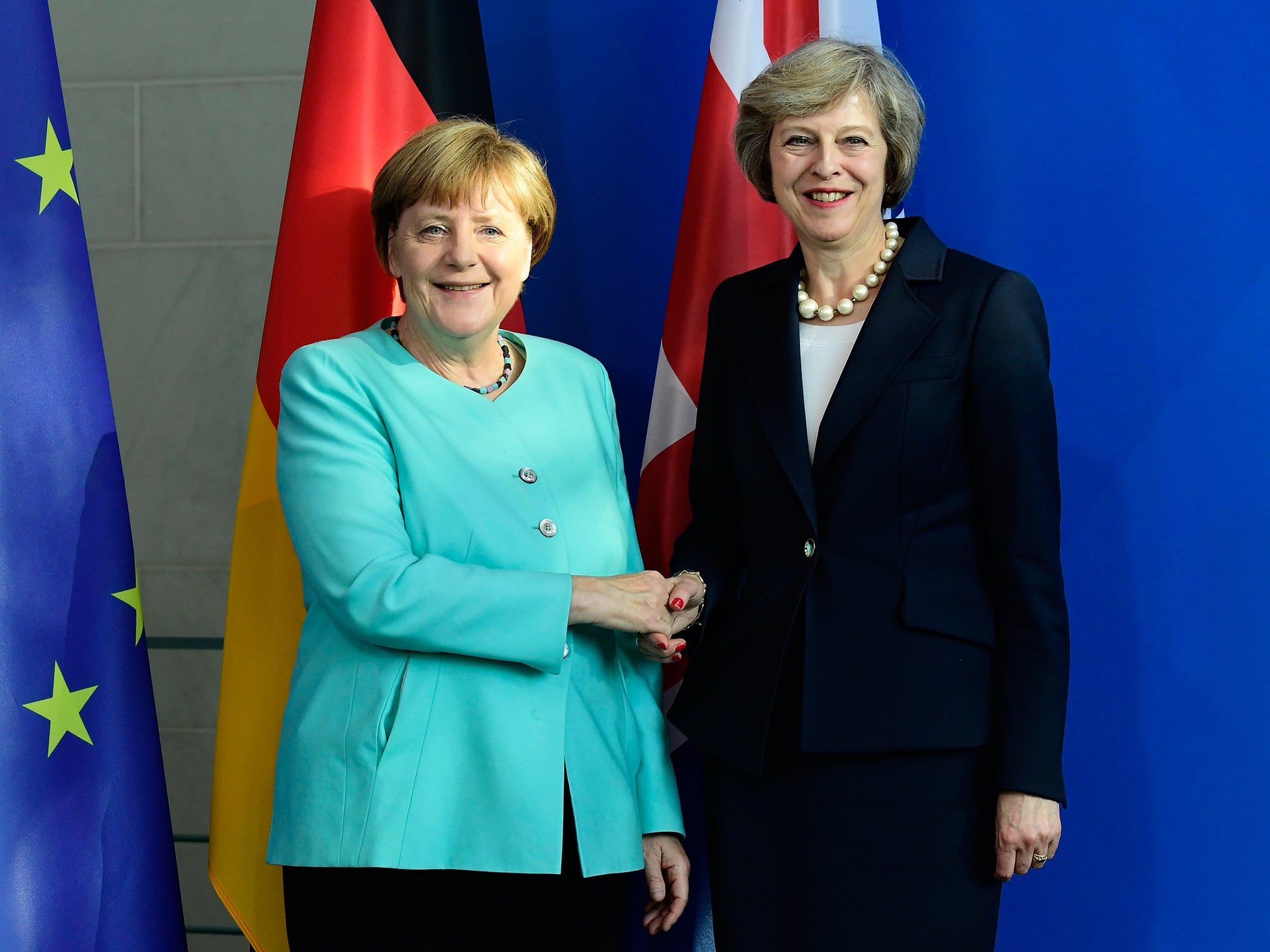Theresa May's pledge to deliver Brexit is about to encounter a big hurdle
Britain had a tough time finding common ground when it intended to remain in the EU – it's going to have an even tougher time now

Your support helps us to tell the story
From reproductive rights to climate change to Big Tech, The Independent is on the ground when the story is developing. Whether it's investigating the financials of Elon Musk's pro-Trump PAC or producing our latest documentary, 'The A Word', which shines a light on the American women fighting for reproductive rights, we know how important it is to parse out the facts from the messaging.
At such a critical moment in US history, we need reporters on the ground. Your donation allows us to keep sending journalists to speak to both sides of the story.
The Independent is trusted by Americans across the entire political spectrum. And unlike many other quality news outlets, we choose not to lock Americans out of our reporting and analysis with paywalls. We believe quality journalism should be available to everyone, paid for by those who can afford it.
Your support makes all the difference.Theresa May has spent the last few days talking to various European leaders about the terms of Britain's withdrawal from the European Union.
On Thursday, the prime minister will head east where she will meet with the leaders of Slovakia and Poland —Robert Fico and Beata Szydlo. It is on this leg of her European tour that May is set to face her toughest task yet.
Slovakia and Poland — like the rest of the nations in eastern Europe — are completely at odds with one of the key reasons Britain voted to leave the EU: the free movement of people.
One of the major reasons Leave politicians and supporters cited for backing a Brexit was Britain taking back control of its borders. As things stand, EU citizens are free to migrate around the 28-nation bloc as they please.
The hope of British government is that it will be able to negotiate a Brexit deal with the EU which means it will retain access to the single market without having to sign up to the rules and obligations of the free movement agreement.
However, as leaders of eastern European nations, Fico and Szydlo are extremely unlikely to be supportive of this sort of arrangement. Their close ally, Czech Republic, has already warned that it would not back a deal which would entitle Britain to single market access without a commitment to the free movement of EU citizens.
"For the new arrangement, we will have two red lines: One, the four freedoms work together and cannot be separated," Czech Europe minister Tomas Prouza said last month. "And two, reciprocity: the same advantages for both sides."
Jean-Claude Juncker, the President of the European Commission, has also told Britain from the start that the country would not have access to the single market without accepting freedom of movement.
"There will be no access to the internal market for those who do not accept the rules – without exception or nuance – that make up the very nature of the internal market system," Juncker said.
Then there is the important issue of the rights and benefits of eastern Europeans currently living in the UK.
It is estimated that 1.2 million eastern Europeans currently live in the UK, many of them coming from Slovakia and Poland, according to the Financial Times. Eastern European leaders are worried that the rights of these people could be damaged if Britain manages to pull out of the free movement agreement.
"For the Polish government," Szydlo said last month, "the most important issue will be the fate of Polish citizens who live in Great Britain. We will try to negotiate that they maintain the privileges they got on their arrival."
Fico, Szydol, and other leaders probably have every reason to be concerned, given the confusion which surrounds the future of EU nationals living in the UK at the moment. Speaking on ITV earlier this month, May refused to guarantee the rights of EU nationals to stay in the country once a Brexit is officially underway.
Slovakia, Poland, Czech Republic and Hungary all blocked David Cameron's attempts to curtail benefits for migrant workers during the former prime minister's efforts to renegotiate the UK's EU membership earlier this year.
The situation has not changed. Britain had a tough time finding common ground when it intended to remain in the EU, and it's going to have an even tougher time doing so now it wants to leave.
Read more:
• This chart is easy to interpret: It says we're screwed
• How Uber became the world's most valuable startup
• These 4 things could trigger the next crisis in Europe
Read the original article on Business Insider UK. © 2016. Follow Business Insider UK on Twitter.
Join our commenting forum
Join thought-provoking conversations, follow other Independent readers and see their replies
Comments